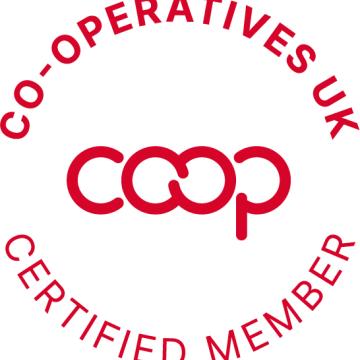Parting ways – removing someone from a co-op's membership
Blog post

This blog from our Co-operative Governance Advisor Linda Barlow explores the process when a co-operative needs to remove someone from its membership.
Co-operatives are organisations that bring together people who are seeking to meet their own social, cultural or economic needs through a democratically owned enterprise.
People are at the heart of a co-operative and it is their passion, drive, organisational skills and will to do business differently for the common good that are the DNA of all successful co-operatives.
However, sometimes the human factor can mean that the people who are the owner members of a co‑operative can cause relationships to fracture and sometimes break down.
This means that, on occasion, tough decisions have to be made about dealing with the conduct of a member, which can ultimately include removing that person from membership.
Be prepared
There are some things that a co-operative can do to prepare for the possibility of dealing with a conduct issue. These are best done NOT in the heat of the moment, or when dealing with a complaint. They include:
- Reviewing the co-operative’s governing document. Does it include a power to remove a member, and under what circumstances can they be removed (eg) for misconduct. Make sure the wording is clear; if necessary, get it checked by an external advisor.
- Being clear who has the power to remove a member – is this by general meeting of the members or is this a reserved power of the Board?
- Reviewing whether the co-operative has adopted a process for investigating any complaints about conduct – if not, prepare and get the Board to adopt one.
- Making sure the Board and members understand what is expected of them generally.
Formal processes should always be the last resort and co-operatives should, where possible, try to employ methods that seek to get to the root of any disagreement, negative behaviour or discontent through informal or formal mediation before formal steps are taken
However, sometimes a formal process to consider the conduct of a member is the only option available. When co-operatives arrive at this point, there are some important steps to keep in mind to ensure that the process and any actions taken are done correctly.
What should co-operatives consider when a serious issue comes up?
- If there has been a complaint about conduct, consider how serious the complaint is, how it originated and what the investigation process into the complaint should be.
- Consider who needs to know, but avoid giving any detail to decision making bodies e.g. the Board, as they may need to be involved at a later stage and you don’t want to colour their judgement. It will also be important to notify the person who has been complained about and in particular what steps the co-operative is taking, including any timetable for the investigation.
- Investigate – gather evidence of what happened, appoint some independent parties to ‘fact find’ and hold interviews with those involved.
- Support decision makers to make careful, impartial decisions.
- Manage any collateral damage – cost and resources to investigate the matter, impact on relationships both within and external to the co-operative.
Seek legal advice before things get tricky. It is always easier to advise on potential issues before they arise, so seek advice before embarking on a formal investigation process.
Need advice on this issue?

Support for your co‑op

Contact package

Benefits of membership

